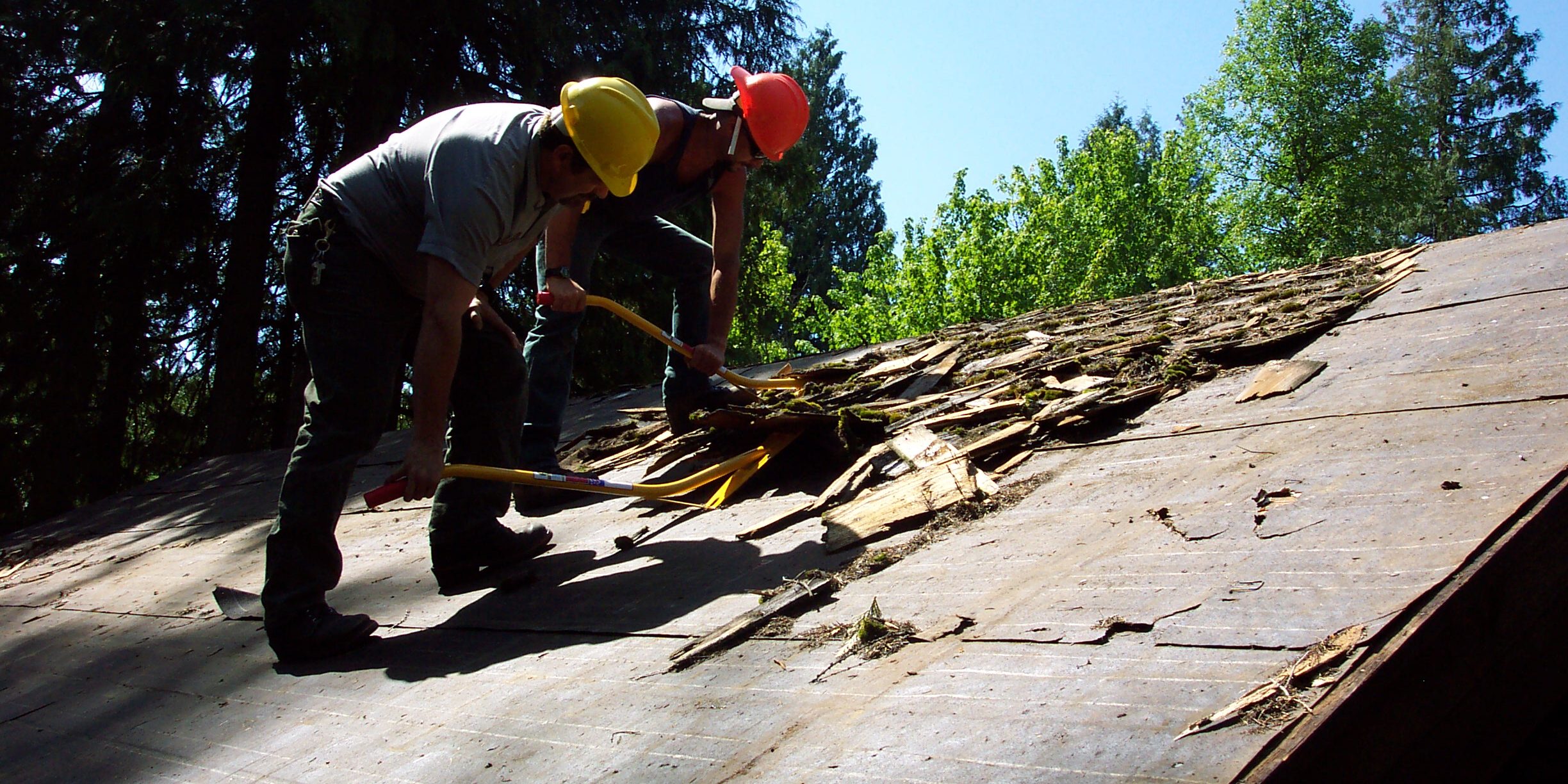A new roof is one of a homeowner’s most important investments. Not only does it protect your home from the elements, but it can also help you save on homeowners insurance. A well-maintained and up-to-date roof helps minimize the risk of damage to your home, thus reducing the costs associated with homeowners insurance.

Does a New Roof Lower Your Homeowner Insurance?
Yes, a new roof will lower your homeowner insurance. Your insurance rate will be lower because the new roof decreases the probability of water damage and has better durability.
Installing a new roof can potentially decrease the insurance rate of homeowners insurance for a few reasons:
- Improved durability and safety: A new roof is less likely to leak or sustain damage in a storm than an older roof. This means there is a reduced risk of damage to the home’s interior, which can result in lower insurance claims and premiums.
- Reduced risk of claims: A new roof can also help prevent other types of damage, such as water damage and mold growth, which can be expensive to repair and may result in insurance claims. By reducing the risk of these types of claims, insurance companies may be willing to offer lower premiums.
- Increased home value: A new roof can also increase a home’s value. This means that the cost of rebuilding or repairing the house in the event of a claim may be higher, but it also means that the home’s overall value is higher, which can lead to lower insurance premiums.
- Discounts for safety features: Some insurance companies offer discounts for safety features, such as impact-resistant shingles or fire-resistant roofs. By installing a new roof with these features, homeowners may qualify for discounts on their insurance premiums.
It’s important to note that the amount of the insurance rate decrease will depend on various factors, such as the age and condition of the previous roof, the type of new roof installed, and the insurance company’s policies and guidelines. Homeowners should always consult with their insurance provider to determine how a new roof may impact their insurance rates.
When shopping for homeowners insurance, insurers typically consider the age and condition of your roof as part of their underwriting process. If they determine that your roof is old or in disrepair, they may deem you a higher risk and increase premiums accordingly. By replacing an older roof with a newer one, you may be able to lower your premium and save money on your monthly payments.
Aside from reducing premiums, installing a new roof has other benefits: improved energy efficiency and increased protection against severe weather. Technology advancements in modern shingle materials have led to more efficient insulation for homes—meaning better temperature control throughout the year—leading to lower heating and cooling bills and improved air quality inside the house. In addition, many new roofs come with wind resistance ratings that help reduce potential damage from strong winds during hurricanes or other extreme weather events.
Of course, replacing an old roof requires an initial investment not all homeowners may be prepared for. It’s important to factor this into deciding whether to replace a roof ahead of time. Before deciding, homeowners should consider any tax credits for installing energy-efficient roofs. This could further reduce the overall costs associated with getting a new roof.
It’s always recommended to consult with several professional contractors who specialize in roofs before settling on any installation job; different climates require different types of materials, so getting multiple quotes from experienced professionals who understand local building codes should be taken into consideration when selecting materials for any project involving replacement roofs or roofs repairs. Additionally, keep an eye out for manufacturer warranties when choosing shingles. These warranties often provide additional assurance for long-term performance and cost savings over time — especially if you live in an area prone to precipitation or natural disasters like hail storms or flooding!
